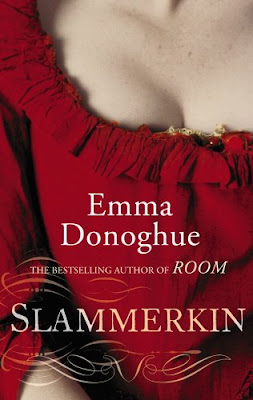Book #03
Set in London and Monmouth in the late 1700s, this is an extraordinary novel about Mary Saunders, the young daughter of a poor seamstress. Mary hungers greedily for fine clothes and ribbons, as people of her class do for food and warmth. It's a hunger that lures her into prostitution at the age of thirteen. Mary is thrown out by her distraught mother when she gets pregnant and almost dies on the dangerous streets of London. Her saviour is Doll - a prostitute. Mary roams London freely with Doll, selling her body to all manner of 'cullies', dressed whorishly in colourful, gaudy dresses with a painted red smile. Faced with bad debts and threats upon her life she eventually flees to Monmouth, her mother's hometown, where she attempts to start a new life as a maid in Mrs Jones's house. But Mary soon discovers that she can't escape her past and just how dearly people like her pay for yearnings not fitting to their class in society.
I’ve read of eighteenth century London many, many times. I’ve read of its rich and poor, of its social customs, its treatment of the oppressed, and its staunch immovability on morals and class. To my knowledge, I’ve never read anything from this era which was based on a heartbreaking and horrific true story. In fact, I wasn’t aware it was based on a true story until I clicked the book on Goodreads, and the synopsis gave everything away. Thanks, Goodreads.
Mary Saunders is born into poverty, and clad in rough clothes. She yearns for finery, for luxury, and to be of a higher station. She watches women in the streets wearing silk and velvet, and feels a sense of longing which precursors her ultimate downfall. Falling into the sex trade, her life begins to fill with colour as she continues to see herself at loftier heights, swelling with her own importance.
We see Mary’s journeys through hardship, her naive ideas about life, her own self-awareness, and her impossibly maddening mistakes. It’s quite difficult to remain sympathetic to her; rarely does she display empathy for others, almost never thinking of anyone other than herself. We can write this off as typical teenage selfishness, or the pervasive necessity to trust no one and look after herself, but she becomes someone difficult to connect with. We see other characters feel the same, so it’s skilful of Donoghue to evoke the same feelings in her readers.
Throughout the novel we see a lot of commentary on women, and it’s clear in these times women were meant to serve a purpose. Wife, washerwoman, whore - you lived your label and were never expected to transcend it; ambition or hopes and dreams were written off as flights of fancy. You made do - you existed for the men, to embody your label, and behave as their servant. Whether wife, washerwoman, or whore, you did your duties.
I really loved this dive into history, and the view of women it’s given me. Donoghue’s knowledge of the era is acute, and I was so incredibly engaged by her depictions of eighteenth century custom, particularly those in the sex worker community. This is a great one for historical fiction enthusiasts, but I’d strongly suggest going into it spoiler-free and remaining so until the end.

